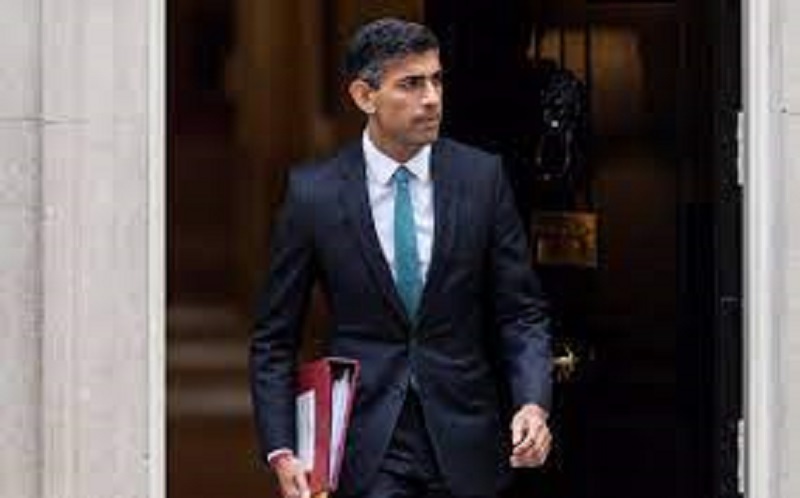
Indian-origin Rishi Sunak, a practising Hindu, happened to be the 57 th Prime Minister of the predominantly Christian United Kingdom, which ruled most of the world as its colony for centuries. The anointing of the new Prime Minister was held in Buckingham Palace on October 25, 2022. This ceremonial event will be recorded in British history almost like this and in the history books, there will also be brief accounts of the peculiar political and economic conditions that led to Rishi Sunak becoming the leader of Conservatives.
It is a historical moment because a political decision like this did never take place before and is unlikely to occur again in Britain in the near future. The possibility of Rishi Sunak becoming the UK’s prime minister by winning the backing of majority lawmakers of the Conservative Party was remote although his rise through the ranks in the party was meteoric.

Sunak’s education at premier universities in the world, proven experience in managing wealth at a reputed investment management firm, popularity as a capable finance minister in the Boris Johnson cabinet, young age, communication skills etc. have certainly worked in his favour. Moreover, on the ground, the political developments have come thick and fast especially after the country’s controversial exit from the European Union and the manifestation of its under-performing economy.
Resentment grew eventually even among members of the ruling Conservative Party and its members of parliament appeared divided over matters of concern such as the selection of a new leader. There were no unanimous decisions as the party lacked unity.

Unusual times, unusual decisions. This has been a norm of democracy these times. When the well-being of people becomes a question, unusual decisions are taken, forgetting differences at all levels because it is the only logical thing to do so as to tide over a period of stalemate. Precedents, loyalty, archaic concepts and flawed formulas bring little solace to people’s daily life which is reeling from financial insecurity due to a number of setbacks, including sudden price rise, increased taxes and fall in currency rate.
It happens in any society where the government fails to steer clear of bad economic trends locally. A situation where people stare at an uncertain future is a grave concern for a nation with a functioning democratic government. Ordinary people and their political parties with lopsided economic views are left with no option but to look to a new man capable of navigating the already divided population caught up in an economic turbulence to a safer zone.
Beyond political agility, the new leader’s economic prudence and ability to create a wave of hope among people that he would plug the loopholes and rectify the wrongs are counted to a great extent. No matter how he looks and there is no question of where he comes from. A leader’s exuberance, determination, right perspective of fiscal nature and ability to make swift moves with fresh fiscal policies are what people usually would like to rely on rather than taking a seemingly flawed, trodden passage in the times of an economic conundrum. And it is inevitable that on the verge of an economic meltdown, the whole population and party leaders also look for nothing but a savior.

In January 2009, African-American Barack Obama became the first Black president of the United States of America. Till then, a Black president of America was just an idea and only a character in novels, comics and movies. However, Barack Obama made history at the age of 47. During his election campaign as a Democrat, the support he received was tremendous, regardless of race, from all walks of life. It was like ‘Obama mania’ then. After the great recession in 2008, Americans saw a hope in Obama amidst the financial crisis and unemployment. Obama and millions of Americans together said: ‘Yes, we can.’ It was the spirit and will of the people for a shift from conventions.
Notwithstanding a great success, such political happenings are very occasional and also experimental in history. Moreover, it could be a necessity of the times when people in dire straits turn to reality over beliefs, novelty over convention and authenticity over legacy.
Rishi Sunak is a practising Hindu whereas the official religion of Britain is Christianity. This contradiction remains redundant as long as Brits are tolerant and goal-oriented in a world of trade and growth where the archetypal approach to life is only to help the country go down the drain. That Rishi Sunak becoming Prime Minister of the UK was celebrated by the Indian community world over is a result of memories of 200 years long British colonial rule in India. More than Brits, it was Indians who wished Rishi Sunak, the new Prime Minister of Great Britain. Naturally, it is a matter of great joy.
BY: KS Rajagopal

Post Your Comments